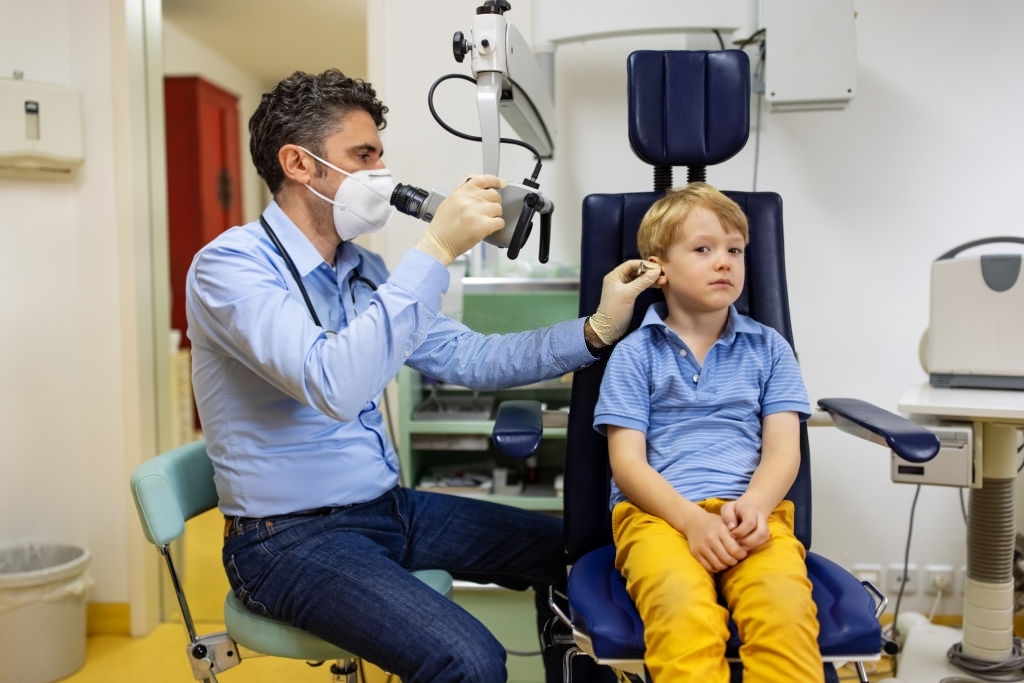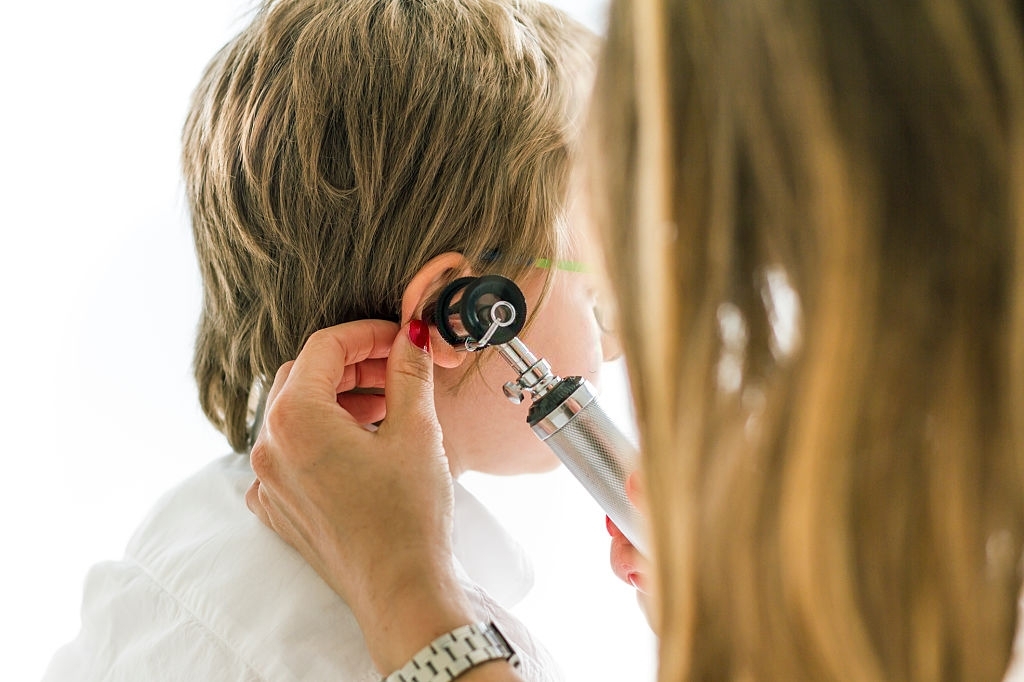Research shows that about three million children suffer from hearing loss, and one in one thousand of them may suffer from a permanent loss at birth. For temporary hearing loss, research shows that six children out of one thousand are affected.
Causes of Hearing Loss in Children
Nerve hearing loss
It leads to permanent loss of hearing in children, and it is mainly hereditary. It is also caused by infections, certain medications, anatomic abnormalities or noise, and head trauma.
Conductive Hearing Loss
It leads to temporary loss of hearing in children, and it is caused by an abnormality in the eardrums or when fluids find their way into the middle ear. The middle ear is located behind the eardrum, where most infections within the ear occur. When infections are cured, fluid is left behind. In some cases, fluids can also find their way into the middle of the ear when the tube connecting the ear and the nose (eustachian tube) is not functioning correctly.
Signs and Symptoms of Hearing Problems in Children
- Difficulties in school
- Children are not turning their heads towards sources of sound.
- When children have difficult times constructing simple phrases when they are twelve months old.
- When they stop babbling.
- Delayed language and speech.
Treatment
Just like many other diseases, the earlier hearing complications are diagnosed, the easier it is for the complication to be reversed or its effects mitigated. For a pediatric ENT doctor to diagnose hearing problems, some tests are taken considering the child’s age. These tests include the Otoacoustic Emission test, audiogram, Auditory Brainstem Response test, and tympanometry.
When a child suffers from temporary loss of hearing, the doctor may recommend regular visits to the hospitals or clinics to remove earwax, perform ear tube placement, and many other simple procedures that can be done to outpatients.
When a child is faced with permanent loss of hearing, the doctor may recommend FM systems, hearing aids, hearing aids anchored to the bone, or cochlea implants depending on the seriousness of the loss of hearing. The ENT doctor may also recommend that the child sees other specialists such as a genetics doctor, a cardiologist (a heart doctor), and an Ophthalmologist (an eye doctor) because the problem may be interconnected to other problems within the body of the child. After diagnosis, the child should also be involved in speech therapy immediately.
Questions That a Parent Can Ask a Pediatric Ent Doctor
In order for parents to stay on track with the Pediatric ENT doctor, they can ask if:
- The child will be able to speak normally.
- The child’s hearing impairment is temporary or permanent.
- There are methods they can use to keep track of their child’s speech and hearing.
- They should seek the opinion of other specialists with regards to their child’s hearing impairment.
- There are ways that they can use to stop their child’s impairment from becoming worse.
- It is necessary for them to read to their child.


